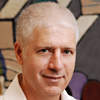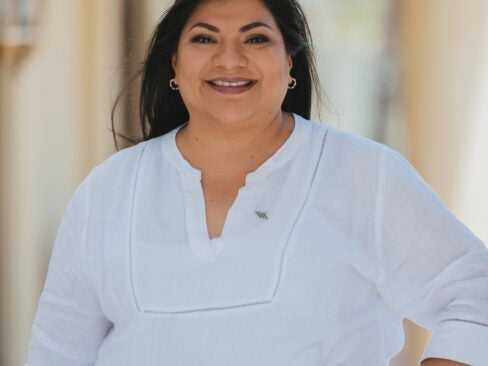
Chief Executive Officer for North and Central AmericaEL AL Israel Airlines
Think of EL AL Israel Airlines and chances are good you’ll picture an airline focused nearly solely on security. However Offer Gat, Chief Executive Officer for North and Central America, says there is much more to the story. Following its privatization in 2004, the airline has modernized its fleet, improved its service, installed new seating in premium cabins and introduced a new strategy of offering nonstop flights to Israel. Elite Traveler Editor-in-Chief Douglas Gollan met with Gat—known in Israel as “Doctor Turnaround”—at his New York City office, to hear how the airline has found new success in North America.
ET: Can you tell us a bit about EL AL today?
Offer Gat: Since our privatization in 2004, it is amazing how we have made the transition. It marked a huge revolution in everything we do, from upgrading the fleet to changing our premium cabins with new seats, new menus, new entertainment systems and new and improved service onboard, to create a premium airline. Our goal is to be not only the best to Israel, but the best on the North Atlantic. When we do our in-flight surveys, customers are telling us we are achieving that. So add to that on-time performance and our continued focus on safety and service, and we have created a very good airline.
ET: How about new and existing routes?
Offer Gat: We opened two nonstop routes to the Americas in recent years, starting with Los Angeles in 2006. We had always flown to Los Angeles but always with a stop, and now we fly three to six times a week depending on the season. Since May 2009 we have flown to Sao Paolo five times a week. Here in New York, we fly to Newark and JFK from three to four times a day, so we have over 30 flights per week. We have 35 planes flying to 44 destinations, and we have three additional 777s to come in 2012 and 2013, and are now planning future orders. Overall we have increased capacity over the past five years by about 20 percent. The average age of the fleet is seven years younger than it was five years ago. The core of our long haul fleet is 747-400s and 777s, except Toronto which is a 767.
ET: And what type of seating and services are in your premium cabins?
Offer Gat: We made all our seats flatbeds in business and first class. In business class it is 170 degrees and in first class it is 180 degrees. EL AL is the only airline flying nonstop from North America to Israel that offers first class. All our first class passengers have meet and greet service to take them through customs, immigrations and to a private car to and from the plane arriving and departing in Tel Aviv. In New York we have this service as well to help customers through immigration and security. Other customers can also purchase this service.
ET: Have you been able to create Tel Aviv as hub?
Offer Gat: Ninety percent of our passengers only go to Tel Aviv. While Tel Aviv is perfectly positioned as a regional hub, the political situation doesn’t make it possible now. We do have business travelers who may stop in Europe on the way to or from Israel, and we have an extensive network to Israel and also on to the Far East.
ET: How are the airport facilities in Tel Aviv?
Offer Gat: Today customers will find one of the best and most modern terminals anywhere. Terminal 3 opened in 2003. It is state-of-the-art, spacious and has great facilities.
ET: How has EL AL been faring during the recession?
Offer Gat: EL AL has been doing better than other airlines. Of course, we are a tiny airline compared to others. We lost money but we maintained our balance sheet and we didn’t have to restructure or go through Chapter 11 as many airlines did. We use our size to be flexible in terms of capacity. We can make changes in weeks, either adding or taking away capacity. We moved very quickly and it paid off.
ET: Tell us about your career.
Offer Gat: For almost 20 years I was with the Israeli Student Travel Association. It was on the other end [of the spectrum], with lots of cheap tickets. I worked my way up to CEO and was in that position for eight years. When I started, the turnover was about $3 million and when I finished it was over $100 million, and the profit was larger than the turnover when I started. I then wanted another challenge. I was called to restructure a domestic travel company that was on the verge of failure. We doubled turnover and made it profitable, but I wanted to have a broader challenge than domestic tourism. I had gotten the name “Doctor Turnaround” and was then hired at a travel agency group, Dies Haus, that was struggling. This was in 1999, and then in 2000 there was the Palestinian uprising and in 2001, 9/11. I felt like a swimmer against the current. It was my most challenging experience as a CEO. I had to decide: Do we tighten the belt and lay off as many people as we can to save capital, or should we use the situation to buy other companies that were also struggling? I persuaded my board of directors to buy companies. As you probably know, a travel agency isn’t worth anything aside from its customer base, so I invented a way to overcome the difference of opinion on what a company was worth between buyer and seller. I paid the seller one percent of the turnover for three years so we kept the former owners engaged, helping keep the customer base. By 2004 we saw dramatic improvement in both revenue and market share. The proof was in 2004, when we made more profit than we lost in the previous three years, and it increased from there. In 2005 I decided to take a vacation for a year. Then I got the offer I couldn’t resist, to come to EL AL in New York.
ET: So you came here to turn around EL AL in North America.
Offer Gat: There was a lot to fix and change. EL AL had a downsizing before I came by more than 30 percent. It was a trauma and the organization here didn’t take it well. My mission was to make the organization function again, to improve the service we give and to change the relations between EL AL here and head office. The downsizing had created dysfunction and lack of cooperation. We were able to change things in less than half a year, and since then we have been focused on increasing our customers and increasing our revenues.
ET: Any advice for readers who are currently managing a turnaround?
Offer Gat: The most important thing for an organization, after trauma, is to create an atmosphere of trust and cooperation. There is nothing more important. If you can get them to trust the manager and management, and get cooperation between the last employee and the first employee, the road to success is almost 100 percent assured. Without this you will never succeed.
ET: Any advice on building trust?
Offer Gat: It’s not what you say, it’s what you do. It’s how you react to people and take care of your employees’ issues, no matter how busy you are. They have to feel you really care. If you only talk, they will smell that right away.
ET: So what’s next?
Offer Gat: We want to continue to improve, and I would like to open new destinations. Miami had been a nonstop flight, and EL AL has decided to be a nonstop operator, so that would make sense. Chicago, San Francisco and Boston all have potential. We don’t have a hub in Tel Aviv. It is a destination, so we will look to be the best nonstop operation between Israel and wherever.
ET: How is the EL AL experience different from other airlines?
Offer Gat: We don’t look at ourselves as just happening to be a carrier that flies to Israel, so we promote Israel as a destination no less than we promote EL AL as an airline. And by having better products, we have been increasing our share despite new competition. On the ground we are faster or as fast as other airlines. Our customers know there is very comprehensive security, and they don’t look at it as a nuisance, so everything moves quickly and we are experienced with this. Our customers are as diverse as any airline, so our staff are really experts on dealing with anybody’s needs. Once you get aboard, you can sense the spirit and our slogan, “EL AL is not just an airline, we are Israel.” As I said earlier, all of the amenities and services one would expect from a premium airline are provided.














